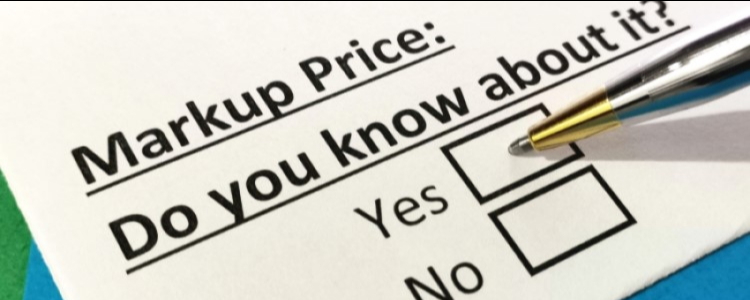Dealer markups can impact your vehicle purchase cost and auto loan in different ways. One thing your dealer may have some control over in your loan is your interest rate. Let's look at how dealers can mark up your interest rate and what you may be able to do about it.
Why do dealers mark up interest rates? When you're approved for an auto loan, your lender sets the interest rate of your loan. However, in return for setting up the financing, those finance companies and captive lenders allow the dealer some leeway when it comes to your interest rate. A small markup on your interest rate typically gives the dealer a small profit for their services.
How does an interest rate markup affect you? This markup may be a few percentage points, or may only be 1% higher than the rate given by the lender. Many automakers cap the amount a dealer is allowed to mark up your rates, but the amount varies. The rate the lender gives is called the buy rate, and the rate you are shown is called a contract rate. Most borrowers never know there's a markup or a difference in these rates. Here's an example of the difference you would pay on a $15,000 loan for 60 months.
If your buy rate is 3% and the dealer gives you a contract rate of 4%, you're paying $403 more. This small profit would go to the dealer. The higher your interest rate, or the bigger the difference, the more you're paying. This same loan with a buy rate of 9% and a contract rate of 11% would cost $885 more.
It's important to be your own advocate when you're shopping for an auto loan, always ask if the rates you're being given are the lowest, and don't forget to rate shop.
Rate shopping can be more difficult for some shoppers, especially if they're dealing with bad credit. With poor credit, you're likely already seeing higher interest rates, so a markup can be harder to swallow.
Know what you can negotiate. Since markups can impact already high interest rates for bad credit borrowers, it's important to know what you have wiggle room on. Typically you can negotiate on the following:
- Vehicle selling price – The price you can buy the car for.
- Your contract rate – The interest rate and APR you're quoted by the dealer.
- Your loan term – How long you have to repay the loan.
- Your down payment amount – How much you must pay upfront.
- Your trade-in amount – How much money you get for your old vehicle, if applicable.
- Dealer fees – Fees for setting up the loan and paperwork, such as a dealer doc fee.
- Dealer add-ons – Additional services such as GAP coverage, and extended warranties.
- Optional services – Extras such as tire packages, fabric protection, and VIN etching.
There's no guarantee how much you'll save, but you never know until you try.
Markups and car prices. Dealer markups can be hard to take right now especially since vehicle prices are already high. Markups are also common on the selling price of the vehicle, so be sure to pay attention to the MSRP on the window, and stand up for a lower price, if necessary. Remember that vehicle prices and markups are happening across the board due to current industry conditions like supply chain issues, so you may have to move fast to get the car you want.
















